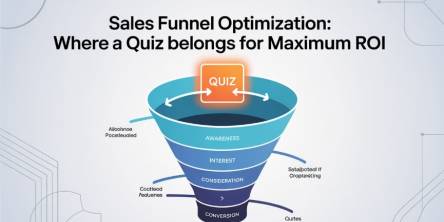Why Your Mechanic Shop Should Start Tracking Declined Services

Running a mechanic shop is not a walk in the park. You have a lot on your plate, such as managing staff, overseeing repairs, maintaining inventory, and dealing with customers. An often overlooked perspective of these operations is that of a declined service. You might recommend a specific repair, and a customer turns it down. It's common and happens all the time.
There can be many reasons for this decline, from hearing "Let’s wait until next time" to cross-questioning about prices. Either way, many shops move on to the next car and forget about it.
Before we get into why this matters, let's quickly go over what declined services are.
What are "declined services" in a repair shop?
Declined services occur when a customer declines a recommended service or repair and says no for now. It could be something like a brake pad replacement, a coolant flush, or even a timing belt that's getting close to wearing out.
Sometimes they'll come back, and sometimes they won't. The problem is, if you're not tracking this stuff, you don't know who said no to what, and when. You might be getting more declined services than expected, and that means you need to take a closer look at why these services are being declined.
Why should shops track declined services by customers
Declined services might feel like a dead end, but they're really just delayed opportunities. These services hold a lot of potential. Here's how:
1. It improves overall shop management.
An underrated aspect of tracking declined services is that it builds transparency across the channels. It helps you see patterns over time. For example:
● Are people frequently declining the same service?
● Are specific techs recommending work that customers don't trust?
● Is price a common issue?
● Are employees just trying to upsell?
● Are technicians recommending services without vehicle inspections?
These insights help you spot patterns and better understand what your customers really care about.
A mechanic shop software allows shop owners to conduct inspections, generate accurate estimates, and log declined services automatically. You can even set reminders for when to follow up with customers.
2. You get more revenue opportunities through personalized marketing.
This is the main reason why tracking declined jobs is essential. You already did the inspection and know what the car needs, so why not follow up?
For example:
Seven customers had turned down brake work service last month. You sent a friendly reminder, and 4 of them came back. That quick reminder could bring in a few hundred extra dollars, without spending a dime on advertising.
All you have to do is set a follow-up reminder in the coming 30 or 60 days. It can be a quick call, text, or email. Draft the email with a sense of urgency to ensure that the customer takes your reminder seriously.
You can draft your reminder message like this:
"Hey, just checking in. Last time you were in, we noticed your brakes were wearing down. Still safe to drive, but it might be time soon. Want to get it on the schedule?"
That's it. Friendly, helpful, and it shows you care about their safety.
3. It helps build customer trust.
It shows you're paying attention to the condition of the vehicle, even when the customer says no.
It's a powerful way to foster trustworthy relationships with customers and allow you to have better conversations with them the next time they come in.
Don't sound crass or use an 'I told you so' tone. Instead, be humble and observant and say, "Last time you declined the brake job, we're seeing the pads are worn a bit more now. I just wanted to follow up."
This shows the customer that you care about them and are not just trying to sell your services. It comes across as consistent and transparent, and that kind of trust builds long-term relationships.
4. You can stay compliant and reduce liability.
Let's face the facts.
If you have done a car inspection and a customer has declined a service, such as brake work or suspension, and they get into an accident later, you could be in a tough spot legally or ethically.
But if you have kept track of everything, then you are safe. You can protect your shop. You can show that you did make the recommendation and that the customer chose not to go forward at that time.
That record can be helpful for both legal and customer service reasons down the road.
The Bottom Line
Auto repair shops are not just about turning wrenches and tightening loose screws. They are so much more now. They run on the latest data to run more innovative businesses. Tracking declined services is part of that. It's part of building a better customer experience, increasing efficiency, and making sure no opportunity slips through the cracks. If you don't want to stay behind, embrace it sooner.
So, next time a customer says they'll do it in the next visit, make sure that doesn't mean "never." Log it, follow up, and watch how it adds up.
Similar Articles
Every sales funnel has one core goal: turn attention into revenue as efficiently as possible. Yet many funnels leak value at critical stages—visitors bounce, leads go cold, and sales teams chase prospects who were never a good fit.
Decentralized Finance (DeFi) has transformed how users earn passive income through blockchain-based financial systems. Among its most popular use cases,
Staying organized can feel like a full-time job. Between meetings, deadlines, and personal commitments, it’s easy to get overwhelmed.
Choosing the right GIS mapping software depends on what you need to accomplish. Some platforms cater to developers who want to build custom applications from scratch.
For data intensive industries such as insurance, the global business landscape is undergoing a profound transformation. Thanks to all the relentless technological innovation, this shift presents both significant challenges and unparalleled opportunities for modernization of the insurance sector.
Organizations are always looking for newer technologies to aid their operations. So, this hunt revolves around solutions that offer not only agility and scalability but are also cost-effective.
Not long ago, the idea of multiple AI agents working together, each with a specific role, collaborating to solve problems, felt like science fiction.
In today’s data-driven world, choosing the right business intelligence (BI) platform can make or break your organization's analytics success.
We all know that companies today are no longer limited to a single physical location. Work processes are also no longer strictly isolated.









